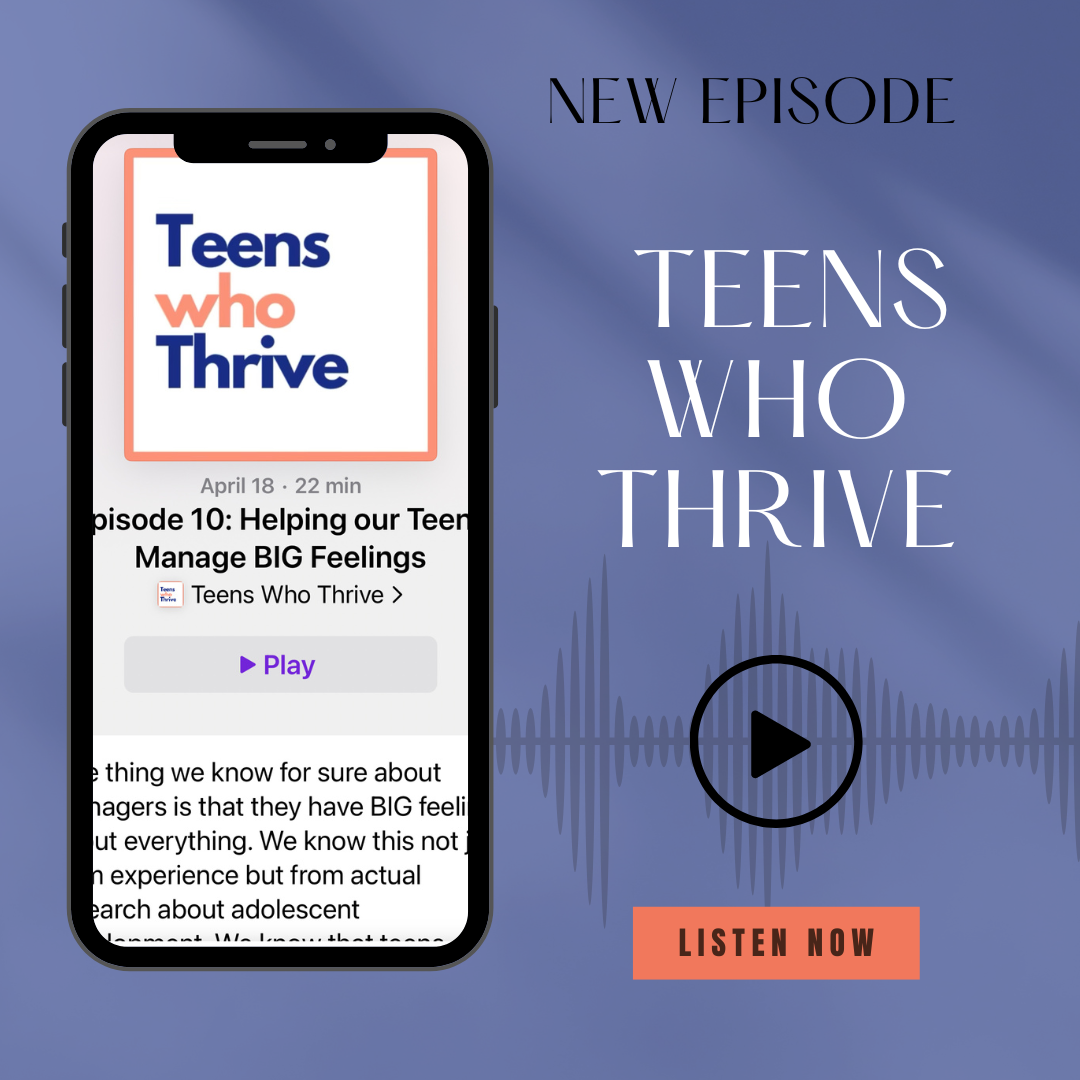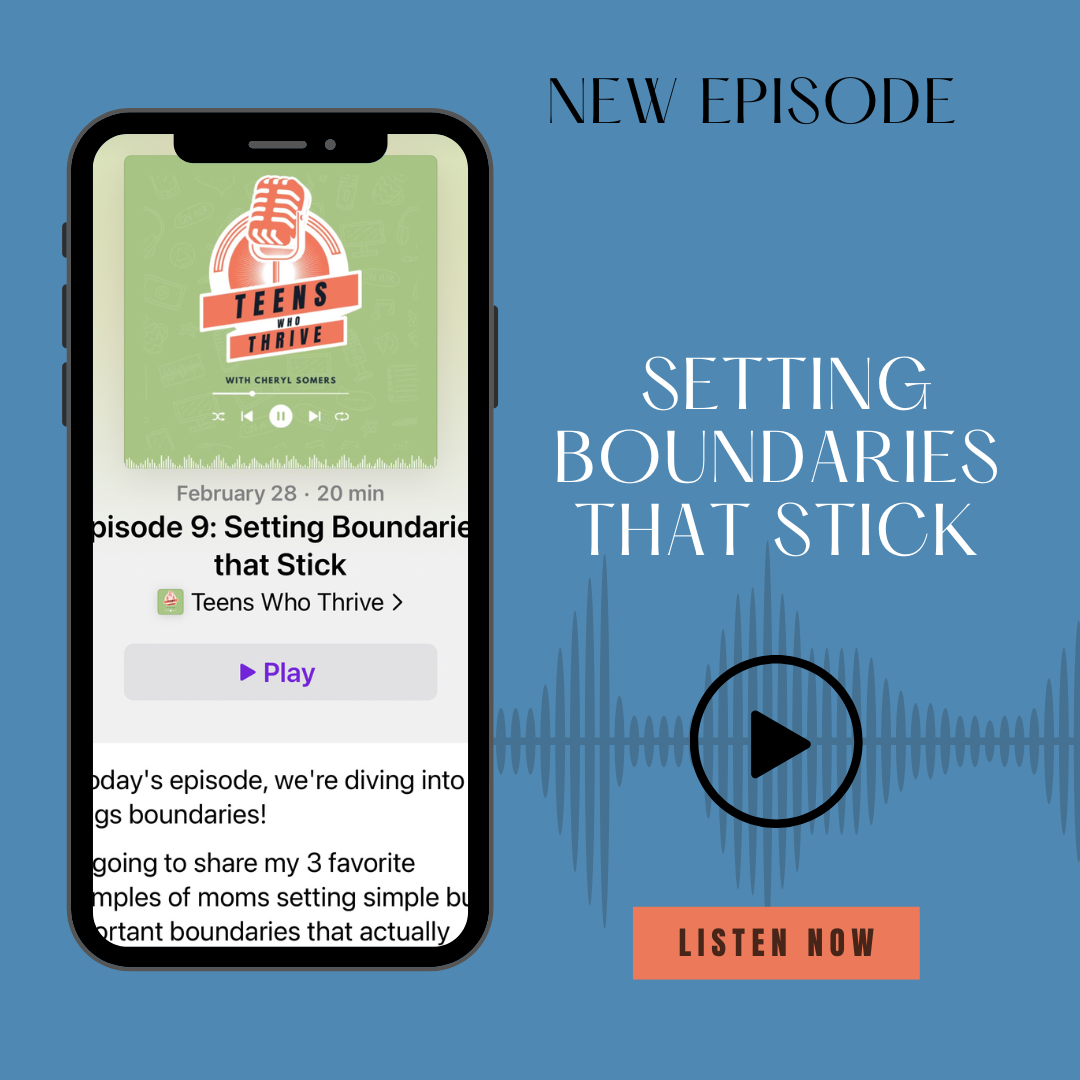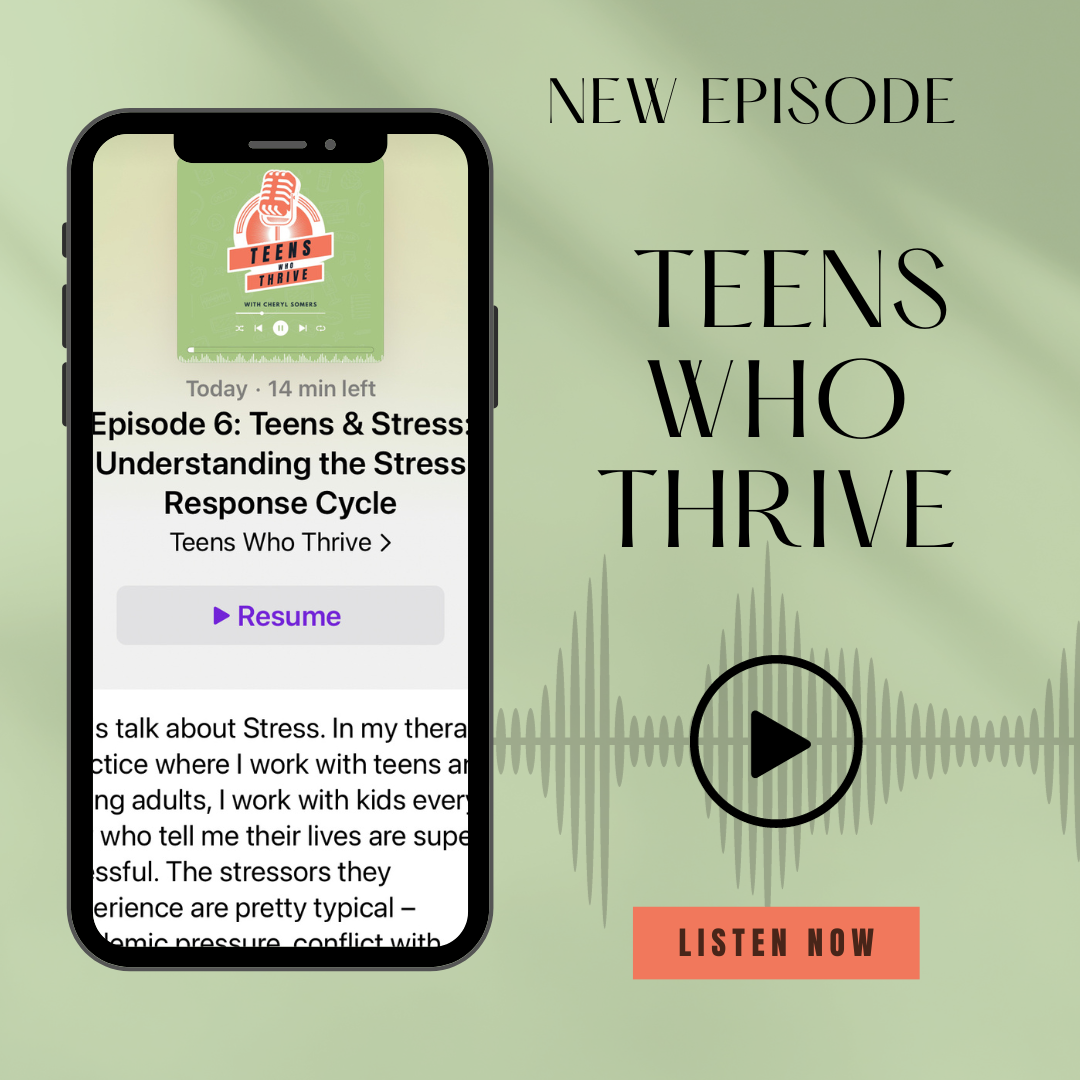
Episode 10: Helping our Teens Manage BIG Feelings
How do we help our teens learn how to manage those big feelings? AND – how do we teach them that their big feelings are not an excuse for big, explosive behavior? In today's episode we will explore:
How to react in the moment when your teen is experiencing intense emotions.
How to give them space to work through the emotions.
How to process what happened
How to hold your teen accountable to repair any hurtful behavior
We will also discuss why this process can be so difficult for parents who want a quick fix or who feel really uncomfortable with conflict and big emotions.

Episode 9: Setting Boundaries that Stick
In today's episode, we're diving into all things boundaries!
I'm going to share my 3 favorite examples of moms setting simple but important boundaries that actually worked!
I'll walk you through these examples and highlight:
The different between boundaries and rules
Why it's so hard to be consistent with our boundaries
Why consistentcy and patience are essential
The positive effect of your boundaries on your relationship
The value of modeling healthy boundaries for your teen.

Episode 8: Why Won't My Teen Talk to Me?
On today’s episode I invite parents to reflect on 4 key questions that will shed some light on why your teen might be reluctant to open up to you.
Together, we will explore:
How to respond to your teen in ways that invite more communication instead of less.
How your own habits and behavior are affecting how safe your teen feels being vulnerable with you
Strategies you can start using today to encourage more trust and more open communication from your teen.

Episode 7: How to gain more INFLUENCE in your teen's life by letting go of your need for CONTROL
I want to talk to you today about the idea of having an influence over your child's choices instead of having control over their choices. I work with parents all the time who are very frustrated that their teenagers never seem to want to take their advice about anything. And we all know the stereotype about teenagers that they think adults are out of touch, they don't want to listen to anything that we say, they think that our advice is outdated and irrelevant. And they're not going to listen. And really we see that in so many movies, so many TV shows, it's all over social media, it's in a million memes. And so this is the image that we have of teenagers — that it's normal for them to reject any advice or input from adults.
But I want to tell you that as a teen therapist, I've worked with dozens and dozens of teenagers over the years who actually tell me something different. What they tell me is that they really do want input from their parents. They really do value their parents advice. But what happens is that every time they approach their parents, or at least in their mind, every time they approach their parents, they feel like they immediately get told what to do. Or they get lectured. Or they get some kind of life lesson. Or they get a story from 30 years ago that doesn't feel very relevant.

Episode 6 —Teens & Stress: Understanding the Stress Response Cycle
But what I'm noticing is a pattern in my teenage clients recently that goes something like this: They experience something stressful, their body has a response to that stress, and that physical reaction makes them very, very uncomfortable. And so then, they avoid, avoid, avoid, avoid any of those situations that cause that physical response because they don't want to experience that again because it makes them so uncomfortable.
So the way I see my job with these teenagers is to help them understand how their nervous system works. Why that stress response that they're feeling is actually perfectly normal and healthy and that they don't have to be afraid of it and they don't have to avoid everything stressful in their lives.
My goal today is to walk you through what I teach my teen clients about the body's stress response cycle so that you can, a) understand it better for yourself, and b) share this information with the teenager in your life so that they can stop having such an unhealthy reaction every time they experience stress.

